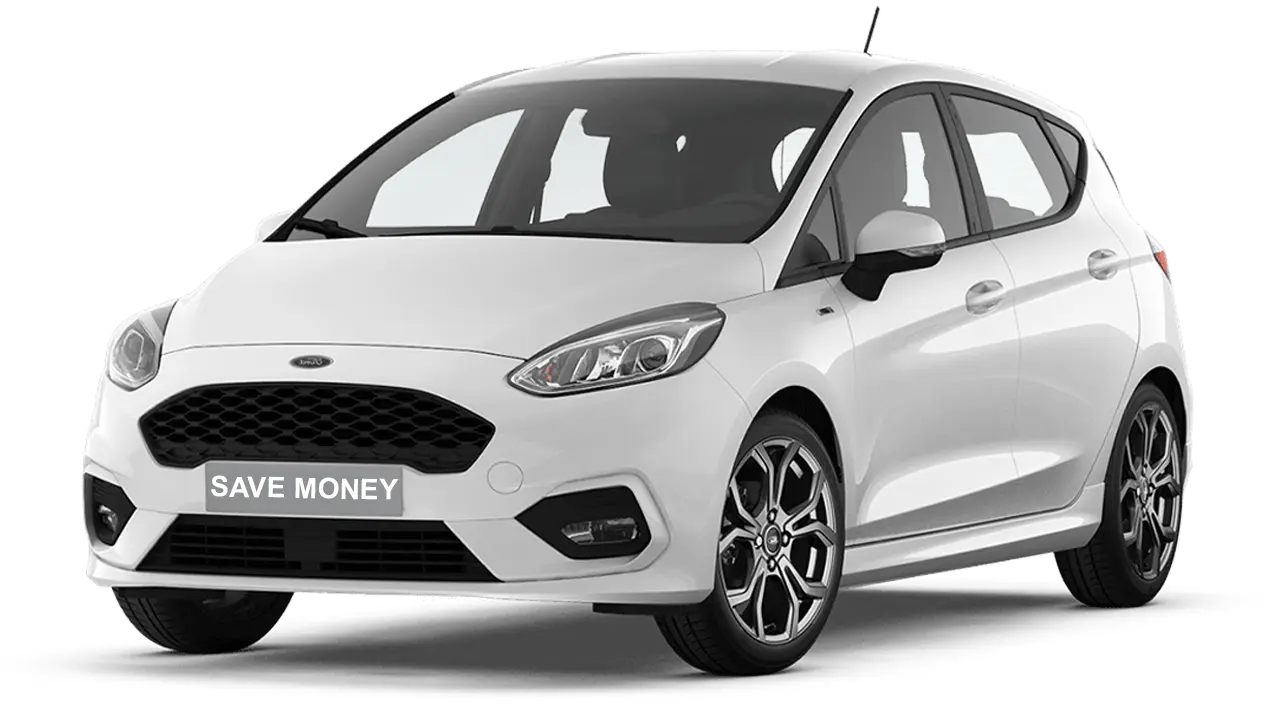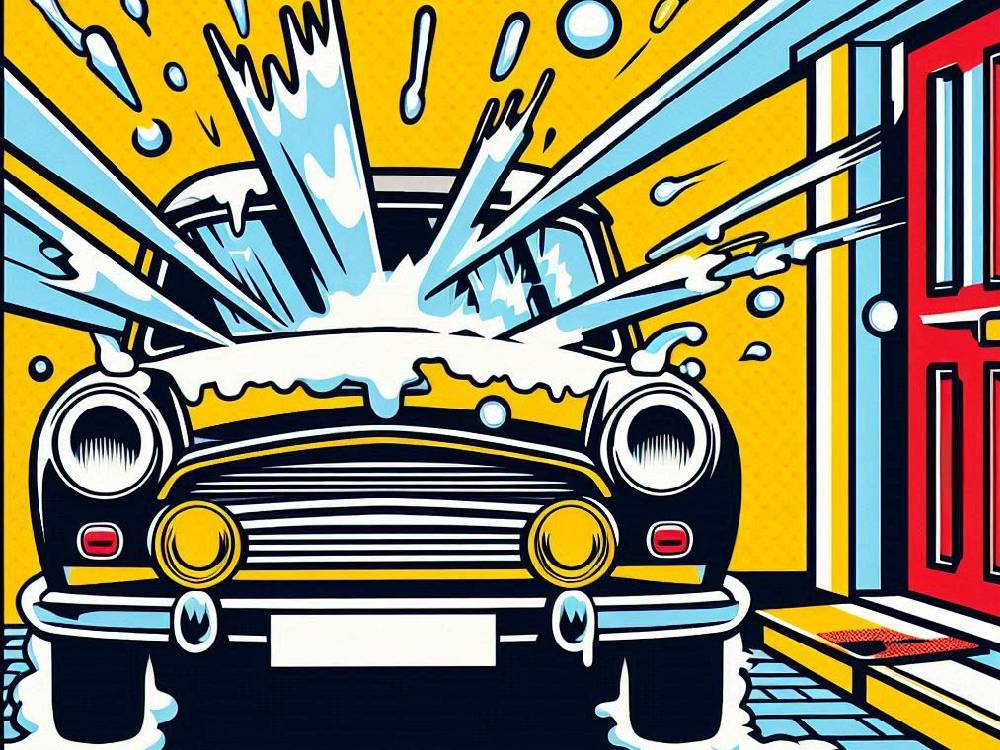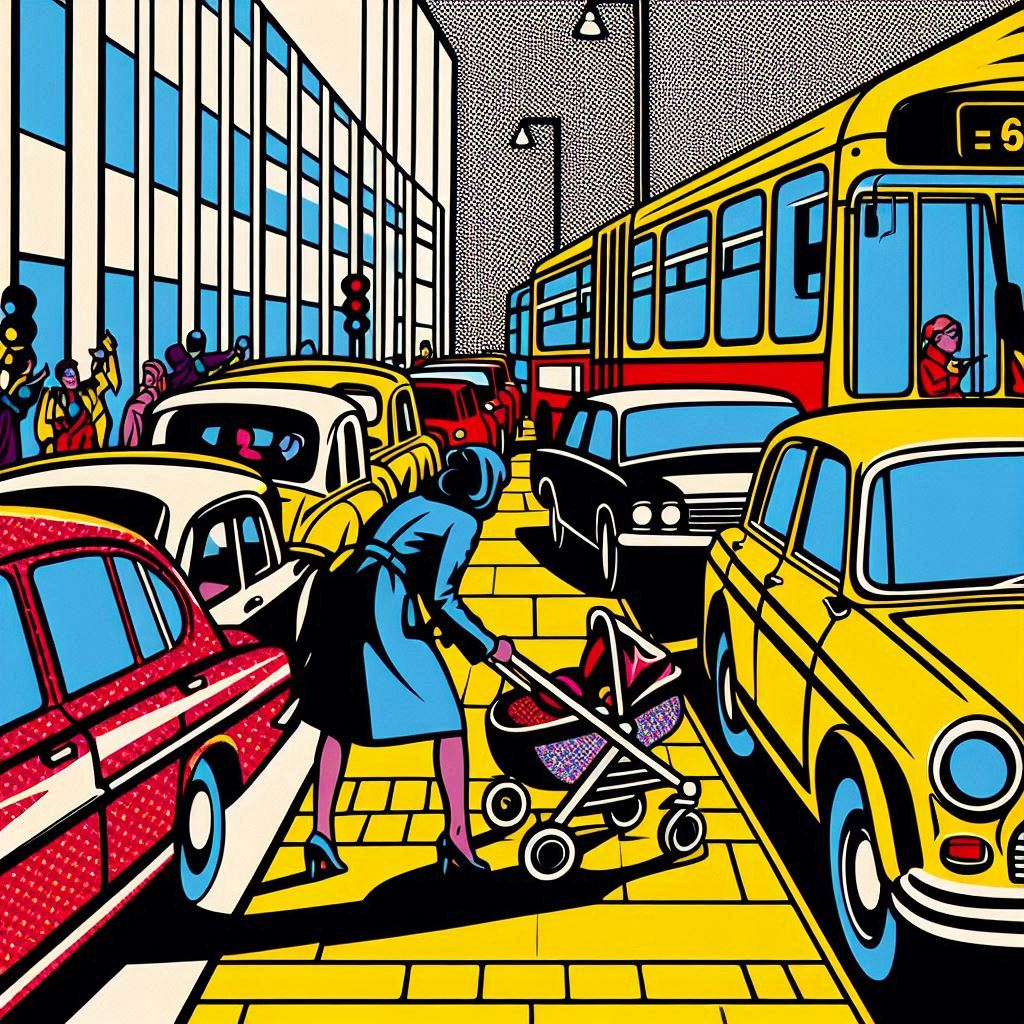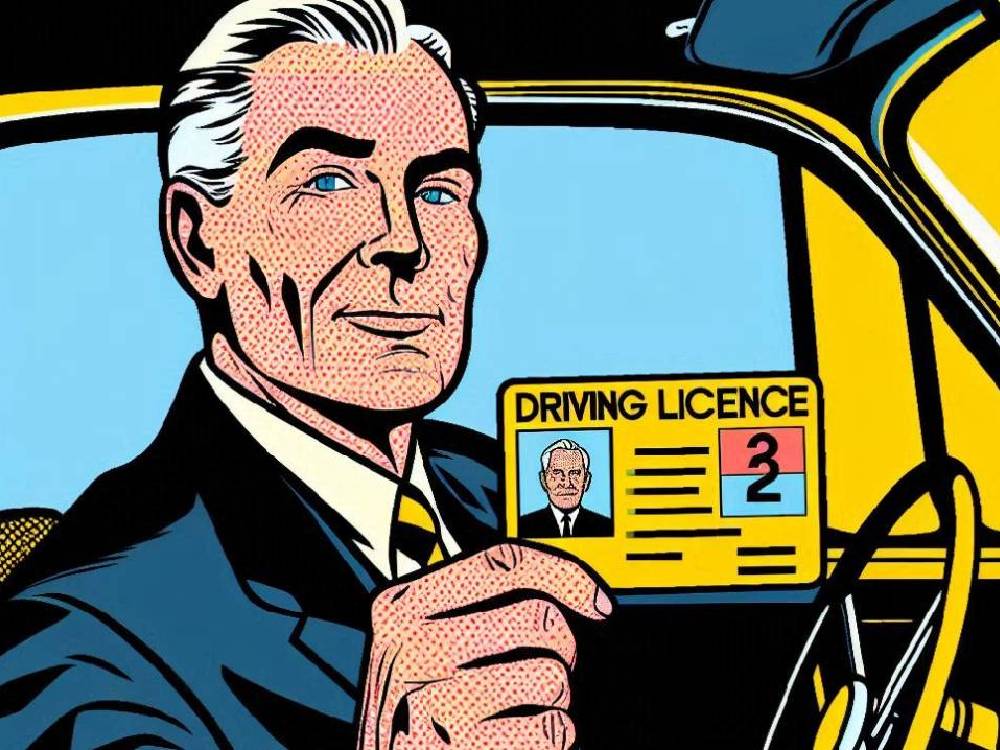Find SAVINGS of up to £518 on car insurance in the next 3 minutes
- An easy way to potentially SAVE MONEY
- Compare 130+ policies in a few clicks
- From household car insurance brands
- Act now to compare your renewal quote &
- See what savings are available today
Don’t have your car registration?
No problem, click here.

4.5 out of 5 on Trustpilot[1]

Step 1
Complete your quick and easy quote

Step 2
Reveal your car insurance policies

Step 3
Pick your favourite and get instant cover
How to get a quote in 3 minutes or less.
The comparison service aims to make this as easy as possible for you. For an instant quote, simply add the following details to see if you can save money on your car insurance.
A few facts about your car
The car’s make and model. Or the registration number, if you have it to hand. You will also need to provide the car’s age and any modifications.
How you plan to use the car
Provide details about your annual mileage for personal, commuting or business use. Select where the car is kept during the day and night.
Some brief details about you
Here you can add your name, age, address, and job status. You can also share details of the type of driving licence you hold and for how long.
Your driving history discount
Disclose details of any accidents, claims, or losses in the past 5 years. Tell us about your no-claims discount and if you want to protect this.
Why use cheap car insurance?
We find ourselves in a unique position at cheap car insurance HQ. Not only are we dedicated and passionate about saving YOU money, but we are also:

- A 100% independent, family-owned and proudly British company
- Serving you 24/7 with our small, UK team of car insurance fanatics
- With hot-off-the-press news, insights and expert tips to save money
- Down-to-earth, regular folks, going above and beyond to make you happy
- To hunt down the very latest cashback offers, freebies and discounts*
- And direct access to some of the best-known car insurance companies*
- As well as 1,000s of car insurance articles, blogs, and cost-saving guides
- Donating a % of all profits to our incredible animal welfare charities
*We are not a car insurance provider. Via Seopa Ltd, we facilitate comparison of UK car insurance quotes.
Your car insurance options.
Car insurance covers the cost of repairing your vehicle if it’s involved in an accident, fire, theft, or other unexpected events. Legally, you must hold valid insurance to operate a car unless you declare it as off-road with the DVLA. Being caught driving without car insurance can result in a minimum £300 fine and six points on your licence. Court cases may also lead to unlimited fines and potential disqualification from driving.
There are three types of car insurance available:

Fully comprehensive
A comprehensive car insurance policy provides the highest protection against potential losses. This typically includes third-party liability as well as accidental damage, personal injury and medical expenses.
Potential saving: £518 per year*

Third party, fire and theft
Provides peace of mind if your car is stolen or damaged by fire. It also covers third-party costs where you are at fault in an accident. Unlike fully comp, this policy will not pay out for similar repairs to your own car.
Potential saving: £518 per year*

Third party only
The lowest level of car insurance required for lawful driving in the UK. Covers damages and injuries to other people (and their cars) caused by an accident where you are at fault. There is no coverage for you or your car.
Potential saving: £518 per year*
*51% of customers using the cheap car insurance website could save up to £518 on their car insurance. This saving is calculated by comparing the cheapest price found with the average of the next four cheapest prices on Seopa Ltd’s price comparison engine. The savings you could achieve are dependent on your individual circumstances and how you selected your current insurance supplier.
Representative savings: June 2025 data.
Top 10 customer questions
What type of car insurance cover do I need?
Choosing the right car insurance coverage is crucial. But how do you decide?
Let’s break it down.
Comprehensive:
This is the highest level of protection and includes third-party, fire and theft, as well as insurance for your vehicle in case of an accident, regardless of fault.
Third Party, Fire and Theft (TPFT):
This policy includes third-party cover plus protection against fire and theft. It does not, however, cover damages to your vehicle in an accident where you’re at fault.
Third Party:
This is the minimum level of insurance legally required to drive in the UK. It covers damages and injuries to other people and their property if you’re at fault in an accident. As with TPFT, it doesn’t cover damages to your vehicle.
Which one should you choose?
Consider your budget, vehicle value, and the level of protection required. Comprehensive cover is recommended for newer or more valuable cars, while TPFT or third-party cover might suffice for older or less valuable vehicles.
How can I get the cheapest car insurance quote possible?
Everyone wants to save money on their car insurance. Here are some tips to help you find the best deal:
Shop around:
Compare quotes from multiple insurers to find the most competitive price.
Choose the right level of cover:
Consider if comprehensive cover is necessary, or if TPFT or third-party cover is sufficient.
Increase your voluntary excess:
A higher excess can reduce your premium, but be prepared to pay more in case of a claim.
Drive safely:
Maintain a clean driving record, as claims and convictions can increase your premium.
Build a no-claims bonus:
Insurers offer discounts for claim-free years.
Opt for a black box policy:
Telematics devices monitor your driving, and safer drivers can receive lower premiums.
Limit modifications:
Aftermarket modifications can increase insurance costs.
Secure your vehicle:
Install an immobiliser or alarm to deter theft, potentially lowering your premium.
Pay annually:
Paying your premium in one lump sum can be cheaper than monthly instalments.
What factors affect the cost of my car insurance premium?
Several factors can impact your car insurance premium. These include:
Age:
Younger and older drivers are considered higher risk, leading to higher premiums.
Vehicle:
The make, model, and age of your car affect its value, repair costs, and the likelihood of theft, impacting your premium.
Location:
Living in an area with higher crime rates or a higher density of traffic can increase your premium.
Mileage:
The more you drive, the higher your risk of being involved in an accident, potentially raising your premium.
Driving history:
A history of claims, accidents, or convictions can result in higher premiums.
Occupation:
Some professions are considered higher risk and may face higher premiums.
Voluntary excess:
Choosing a higher voluntary excess can lower your premium, but you’ll pay more in the event of a claim.
Security features:
Installing approved security devices can lead to lower premiums.
Optional extras:
Adding extras like breakdown cover, legal protection, or a courtesy car can increase your premium.
Understanding these factors can help you find ways to reduce your car insurance premium.
Can I add named drivers to my policy and does this cost more?
Adding named drivers to your policy is an option, but what’s the impact? Here’s what you need to know:
Benefits:
Sharing a car with other responsible drivers can help spread the driving duties, potentially reducing the risk of accidents.
Impact on cost:
Adding experienced drivers with a clean driving record may lower your premium. However, adding inexperienced or high-risk drivers can increase your premium.
Temporary additions:
Some insurers allow you to add drivers temporarily, which can be useful for occasional car sharing or when a friend borrows your vehicle.
Remember, the named drivers must use the car only occasionally, and the main driver should be the person who uses the vehicle most frequently. Misrepresenting this information can be considered “fronting,” which is a form of insurance fraud.
What is a no-claims bonus and how does it affect my premium?
A no-claims bonus (NCB) is a discount offered by insurers for each year you don’t make a claim on your car insurance policy. It’s a reward for safe driving and can significantly reduce your premium over time.
Accumulation:
NCBs accumulate annually, with higher discounts for more claim-free years (up to a certain limit).
Protection:
Some insurers offer “no-claims bonus protection,” which allows you to make a limited number of claims without affecting your NCB.
Transferability:
If you switch insurers, you can usually transfer your NCB to your new policy.
Keep in mind that if you make a claim, your NCB may be affected, and your premium could increase.
What optional extras are available and are they worth the cost?
Optional extras can enhance your car insurance policy, but are they worth it? Let’s explore:
Breakdown cover:
Provides roadside assistance and recovery if your vehicle breaks down. Consider your vehicle’s age, reliability, and the distance you travel before adding this extra.
Legal protection:
Covers legal expenses related to a car accident, such as pursuing compensation or defending against claims. Weigh the potential costs of legal proceedings against the extra premium.
Courtesy car:
Offers a temporary replacement vehicle while yours is being repaired. If you rely heavily on your car, this extra can be valuable.
When considering optional extras, assess your individual needs, budget, and the likelihood of needing these services. It’s essential to strike a balance between cost and peace of mind.
How do I make a claim if my car in damaged in an accident?
If you’re involved in an accident, follow these steps to make a claim:
Gather information:
Collect the other driver’s contact and insurance details, take photos of the scene, and get witness statements if possible.
Report the incident:
Notify your insurer as soon as possible, providing all relevant information.
Submit documentation:
Provide any necessary documents, such as police reports, repair estimates, or medical records.
Await assessment:
The insurer will review your claim and determine if it’s covered under your policy and the amount of compensation.
Pay excess:
You may need to pay your policy’s excess before receiving any payout.
Complete repairs:
The insurer will either arrange for repairs or provide you with the funds to cover the costs.
Cooperate with your insurer throughout the process, and keep records of all correspondence and expenses related to the claim.
What are voluntary and compulsory excess and how to they work?
An excess is the amount you agree to pay towards a claim before your insurer covers the remaining costs.
There are two types of excess: voluntary and compulsory.
Voluntary excess:
This is an amount you choose to pay in addition to any compulsory excess. Opting for a higher voluntary excess can reduce your premium, as it signals to the insurer that you are willing to share more of the risk. However, ensure that you can afford the total excess in case of a claim.
Compulsory excess:
This is the minimum amount set by the insurer that you must pay towards a claim. The amount varies depending on factors such as your age, driving experience, and the type of vehicle you drive.
When selecting a policy, carefully consider both the voluntary and compulsory excess amounts to ensure they suit your financial situation and risk tolerance.
Can I pay for my car insurance premiums in monthly instalments?
Most insurers offer the option to pay your car insurance premium in monthly instalments or as an annual lump sum.
But what’s the difference?
Monthly instalments:
This option can help you manage your budget by spreading the cost of insurance over the year. However, it’s essential to know that some insurers may charge interest for this payment method, making it more expensive in the long run.
Annual payment:
Paying your premium upfront can save you money, as many insurers offer discounts for annual payments. It also eliminates the risk of missing a monthly payment and potentially having your policy cancelled.
Consider your financial situation and cash flow when deciding on the payment method that works best for you.
Will prior claims and convictions increase my insurance premiums?
Your driving history plays a significant role in determining your car insurance premium. Here’s how previous claims and convictions can affect your costs:
Claims:
If you have a history of making claims, insurers may view you as a higher risk, leading to increased premiums. However, maintaining a no-claims bonus can help offset this and reduce your premium.
Convictions:
Traffic convictions, such as speeding or driving under the influence, can significantly impact your premium. Some insurers may even refuse to cover drivers with certain convictions. To reduce the impact of convictions, consider attending a driving course, maintaining a clean record moving forward, and shopping around for an insurer that specializes in high-risk drivers.
Being aware of the impact of your driving history on your premium can motivate you to drive more safely and responsibly, ultimately leading to lower insurance costs.
Cheap car insurance blog

Article
Car Insurance Warning: Young Drivers Risk £12,000 Loss Over One Illegal Habit
Introduction Car Insurance warning – costs are rising. And for young drivers, one illegal habit is quietly making Cheap Car Insurance almost...

Article
Car Insurance Warning: The December Morning Mistake That’s Getting UK Cars Stolen
Introduction Every December, a familiar winter habit quietly puts Car Insurance at risk across the UK. As temperatures fall, mornings become rushed....

Article
Car Insurance: Why Winter Driving Anxiety Could Cost You More Than You Think
Introduction Winter Driving Anxiety… Winter roads across the UK are triggering record levels of driver anxiety. Motorists are staying home until the...

Article
Car Insurance: The New Parking Rule That Could Change How Millions Drive In The UK
Introduction Cheap Car Insurance UK.. A major shift in how you park, drive, and insure your vehicle is fast approaching. The Government...

Article
Car Insurance: Why Thousands Of Drivers Turning 70 Feel ‘Targeted’ By The DVLA
Introduction Car Insurance for Drivers Over 70. Getting older shouldn’t mean unexpected roadblocks – yet thousands of UK motorists feel blindsided the...

Article
Car Insurance: What You MUST Do After A Bad Accident (UK Driver Survival Guide)
Introduction What to do after a car accident. A bad accident changes everything in seconds. Because suddenly your heart races. And your...
Top 5 ways to save money on car insurance in 2025
Finding cheap car insurance doesn’t have to mean sacrificing cover. Whether you’re an experienced driver or insuring your first car, there are several simple ways to reduce your premium – without cutting corners.
Here are five proven strategies to help you save on car insurance in 2025:
1. Shop around (don’t auto-renew)
One of the easiest ways to get cheap car insurance is to avoid automatic renewals. Insurers often increase premiums quietly at renewal, assuming you won’t check.
Instead, compare quotes from multiple providers or use a car insurance comparison service to find better deals. Switching at the right time could save you hundreds.
2. Increase your voluntary excess
Increasing your voluntary excess can lower the cost of your premium. Insurers often reward drivers who are willing to pay more upfront in the event of a claim.
Just ensure your excess remains manageable. This is a common tactic for drivers seeking UK car insurance with reliable coverage.
3. Add an experienced named driver
If you’re a younger or high-risk driver, adding a trusted, experienced motorist as a named driver can lower your quote. It’s a simple way to reduce risk in the eyes of insurers and potentially access cheaper car insurance options.
However, avoid “fronting” – it’s illegal and will invalidate your policy.
4. Choose a telematics (black box) policy
Telematics policies use a black box or smartphone app to monitor your driving habits. Drive safely and you’re rewarded with lower premiums – ideal for younger drivers looking for cheap car insurance for under 25s.
Many insurers now offer flexible options that don’t require installing a device.
5. Pay annually, not monthly
Paying monthly for your car insurance usually includes interest charges, making your coverage more expensive. If you can afford it, pay annually to get a better rate.
This one-off payment often unlocks the cheapest car insurance quotes available from most UK providers.
Final Thought
There’s no one-size-fits-all solution, but a few smart decisions can make a big difference.
From comparing quotes to paying annually, each tip above brings you one step closer to finding car insurance that actually works for you.
Please note
The information presented on this website is intended for editorial purposes only. It does not constitute a recommendation, endorsement, or financial advice. While we strive to provide accurate and up-to-date information, all content is published on an ‘as is’ basis. We make no warranties regarding its completeness or accuracy. Users should conduct their own research before making any financial decision. Cheapcarinsurance.co.uk is not a car insurance provider. With our partners at Seopa Ltd, we facilitate comparison of car insurance quotes to help users find options that may suit their needs. Prices, terms, and conditions may vary by provider, and the final cost of any car insurance policy is subject to the provider’s assessment and approval. Please review all policies and terms carefully before purchasing.

